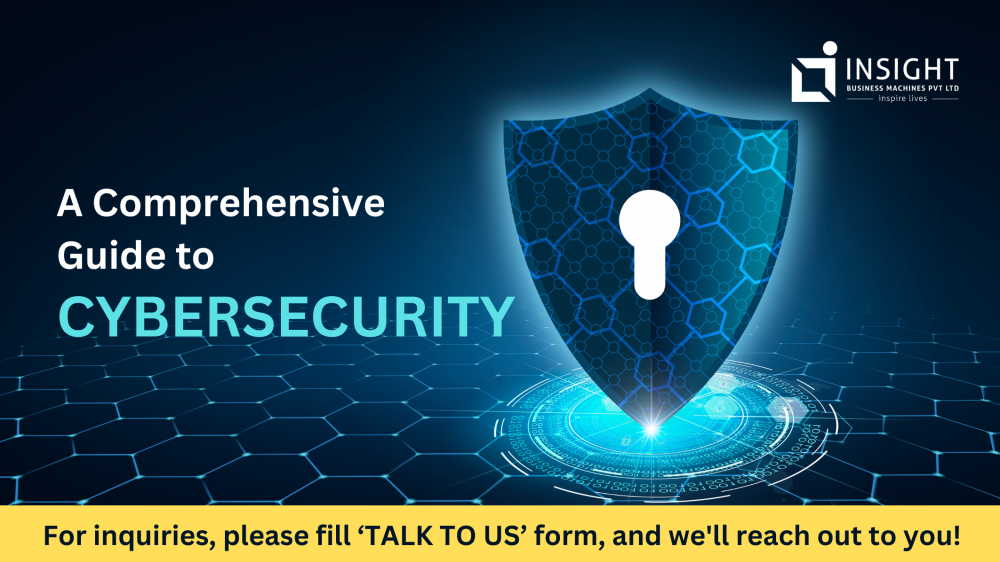Navigating The Digital Frontier: Online Jobs And Cybersecurity In The 21st Century
Navigating the Digital Frontier: Online Jobs and Cybersecurity in the 21st Century
Related Articles: Navigating the Digital Frontier: Online Jobs and Cybersecurity in the 21st Century
Introduction
With great pleasure, we will explore the intriguing topic related to Navigating the Digital Frontier: Online Jobs and Cybersecurity in the 21st Century. Let’s weave interesting information and offer fresh perspectives to the readers.
Table of Content
- 1 Related Articles: Navigating the Digital Frontier: Online Jobs and Cybersecurity in the 21st Century
- 2 Introduction
- 3 Navigating the Digital Frontier: Online Jobs and Cybersecurity in the 21st Century
- 3.1 The Rise of Online Jobs: A Global Workforce
- 3.2 Cybersecurity in the Online Job Landscape: A Growing Concern
- 3.3 Cybersecurity Best Practices for Online Workers: A Protective Shield
- 3.4 Cybersecurity in Online Job Platforms: Ensuring a Safe and Secure Ecosystem
- 3.5 FAQs on Online Jobs and Cybersecurity: Addressing Common Concerns
- 3.6 Tips for Online Workers: Enhancing Cybersecurity Practices
- 3.7 Conclusion: A Secure Future for Online Jobs
- 4 Closure
Navigating the Digital Frontier: Online Jobs and Cybersecurity in the 21st Century
The digital age has revolutionized the way we live, work, and interact. The internet has become an indispensable tool, connecting people across geographical boundaries and facilitating the exchange of information at unprecedented speeds. This interconnectedness, however, comes with inherent vulnerabilities, making cybersecurity a critical concern for individuals and organizations alike. This article explores the evolving landscape of online jobs and the crucial role cybersecurity plays in safeguarding this digital ecosystem.
The Rise of Online Jobs: A Global Workforce
The internet has democratized the workplace, breaking down geographical barriers and creating opportunities for individuals to pursue careers from anywhere in the world. Remote work, freelancing, and online entrepreneurship have become increasingly popular, offering flexibility, autonomy, and access to a global talent pool.
Types of Online Jobs:
- Freelancing: Platforms like Upwork, Fiverr, and Freelancer connect businesses with skilled professionals offering services in writing, design, programming, marketing, and more.
- Remote Work: Companies are increasingly adopting remote work models, enabling employees to work from home or other locations while maintaining productivity.
- Online Entrepreneurship: The internet provides a platform for individuals to launch their own businesses, selling products or services online through e-commerce platforms, social media, or their own websites.
- Gig Economy: Platforms like Uber, Lyft, and TaskRabbit offer individuals the opportunity to earn income by performing short-term tasks or services on demand.
Cybersecurity in the Online Job Landscape: A Growing Concern
While the online job market offers numerous advantages, it also presents unique cybersecurity challenges. The decentralized nature of online work, the reliance on digital communication and data storage, and the constant threat of cyberattacks require heightened awareness and proactive measures to ensure security.
Cybersecurity Threats in the Online Job Context:
- Data Breaches: Sensitive information like personal details, financial data, and intellectual property stored on company servers or individual devices can be compromised through phishing attacks, malware infections, or unauthorized access.
- Identity Theft: Hackers can steal personal information to create fake identities, access financial accounts, or commit fraud.
- Cyberstalking and Harassment: Online platforms can be used for harassment, intimidation, and the spread of misinformation.
- Sabotage and Espionage: Malicious actors can target online businesses or individuals to disrupt operations, steal trade secrets, or gain a competitive advantage.
- Ransomware Attacks: Hackers can encrypt data and demand payment for its release, potentially causing significant financial losses and operational disruptions.
Cybersecurity Best Practices for Online Workers: A Protective Shield
Individuals engaged in online work must prioritize cybersecurity to safeguard their personal data, professional reputation, and financial well-being. Here are essential best practices:
1. Strong Passwords and Multi-factor Authentication:
- Use strong, unique passwords for all online accounts and avoid reusing passwords across different platforms.
- Enable multi-factor authentication (MFA) whenever possible, adding an extra layer of security by requiring a code or biometric verification in addition to a password.
2. Secure Networks and Devices:
- Use a secure Wi-Fi connection whenever possible, especially when accessing sensitive information.
- Avoid public Wi-Fi networks without strong encryption.
- Keep devices updated with the latest security patches and software updates.
- Install reliable antivirus and anti-malware software.
3. Email Security and Phishing Awareness:
- Be cautious of suspicious emails, especially those with attachments or links from unknown senders.
- Verify the sender’s identity before clicking on any links or opening attachments.
- Report phishing attempts to the relevant authorities.
4. Data Backup and Recovery:
- Regularly back up important data to a secure location, such as an external hard drive or cloud storage service.
- Ensure you have a reliable data recovery plan in place in case of data loss.
5. Privacy Settings and Data Protection:
- Be mindful of the information you share online and adjust privacy settings on social media platforms and other online services.
- Avoid sharing sensitive information on public platforms.
6. Continuous Learning and Awareness:
- Stay informed about the latest cybersecurity threats and best practices by reading industry blogs, attending webinars, and participating in online forums.
- Develop a strong understanding of common cybersecurity vulnerabilities and how to mitigate them.
7. Reporting Suspicious Activity:
- Report any suspicious activity or potential security breaches to the relevant authorities or platform providers.
- Be proactive in identifying and addressing potential security risks.
Cybersecurity in Online Job Platforms: Ensuring a Safe and Secure Ecosystem
Online job platforms play a critical role in promoting cybersecurity within the digital workforce. By implementing robust security measures, they can create a safer environment for both employers and workers.
Key Cybersecurity Measures for Online Job Platforms:
- Data Encryption: Platforms should encrypt sensitive user data, including personal information, financial details, and project files, to protect it from unauthorized access.
- Two-Factor Authentication: Implement two-factor authentication for user accounts to enhance security and prevent unauthorized logins.
- Secure Payment Processing: Use secure payment gateways to process transactions and protect financial data from fraud and theft.
- Regular Security Audits: Conduct regular security audits to identify and address vulnerabilities, ensuring the platform remains secure.
- Security Awareness Training: Provide security awareness training to employees and users to educate them about common threats and best practices.
- Incident Response Plan: Develop a comprehensive incident response plan to handle security breaches and data leaks effectively.
- Collaboration with Cybersecurity Experts: Partner with cybersecurity experts to enhance security measures and stay ahead of emerging threats.
FAQs on Online Jobs and Cybersecurity: Addressing Common Concerns
1. How can I protect myself from phishing attacks?
- Be cautious of emails from unknown senders, especially those with attachments or links.
- Verify the sender’s identity before clicking on any links or opening attachments.
- Hover your mouse over links to see the actual destination URL.
- Report phishing attempts to the relevant authorities.
2. What are some common signs of a phishing email?
- Poor grammar and spelling errors.
- Urgent requests for personal information or financial details.
- Suspicious links or attachments.
- Sender’s email address doesn’t match the company’s official domain.
3. How can I secure my home Wi-Fi network?
- Use a strong and unique password for your Wi-Fi network.
- Enable WPA2 or WPA3 encryption for your network.
- Regularly update your router’s firmware.
- Change the default router username and password.
4. What should I do if I suspect my computer has been infected with malware?
- Disconnect from the internet immediately.
- Run a full system scan with your antivirus software.
- Consider using a dedicated malware removal tool.
- If necessary, contact a cybersecurity professional for assistance.
5. How can I protect my online identity?
- Use strong and unique passwords for all online accounts.
- Enable multi-factor authentication whenever possible.
- Be cautious about the information you share online.
- Monitor your credit reports regularly.
- Report any suspected identity theft to the relevant authorities.
6. What are the best practices for securing online payments?
- Use secure payment gateways like PayPal or Stripe.
- Avoid using public Wi-Fi networks for online transactions.
- Check for the "https" prefix in the website URL and look for a padlock icon in the address bar.
- Use a virtual credit card or prepaid card for online purchases.
7. How can I stay informed about the latest cybersecurity threats?
- Subscribe to cybersecurity newsletters and blogs.
- Follow cybersecurity experts on social media.
- Attend cybersecurity webinars and conferences.
- Join online cybersecurity forums and communities.
Tips for Online Workers: Enhancing Cybersecurity Practices
- Regularly update passwords and enable multi-factor authentication for all online accounts.
- Use a strong antivirus and anti-malware software on all devices.
- Avoid using public Wi-Fi networks for sensitive tasks.
- Be cautious of suspicious emails and attachments.
- Back up important data regularly to a secure location.
- Be mindful of the information you share online.
- Report any suspicious activity or potential security breaches to the relevant authorities.
- Stay informed about the latest cybersecurity threats and best practices.
Conclusion: A Secure Future for Online Jobs
The online job market is rapidly expanding, offering individuals unprecedented opportunities for professional growth and financial independence. However, cybersecurity remains a paramount concern, requiring individuals and organizations to adopt proactive measures to safeguard themselves from the ever-evolving landscape of cyber threats. By implementing best practices, staying informed about emerging vulnerabilities, and collaborating with cybersecurity experts, we can create a secure and thriving online job ecosystem for the future.







Closure
Thus, we hope this article has provided valuable insights into Navigating the Digital Frontier: Online Jobs and Cybersecurity in the 21st Century. We appreciate your attention to our article. See you in our next article!
You may also like
Recent Posts
- Navigating The Digital Landscape: Online Job Opportunities For 17-Year-Olds
- Navigating The Amazon Ecosystem: Online Opportunities For Students
- Navigating The Digital Landscape: Online Jobs In Illinois
- Navigating The Realm Of Remote Work In Malta: A Comprehensive Guide
- The Rise Of Remote Work: A Comprehensive Look At Online Jobs In America
- Unlocking Opportunities: Online Tutoring As A Career Path For Women
- The Rise Of Remote Work: A Comprehensive Guide To Online Jobs From Home In The USA
- The Digital Frontier: Navigating Entry-Level Online Jobs Without Prior Experience


Leave a Reply